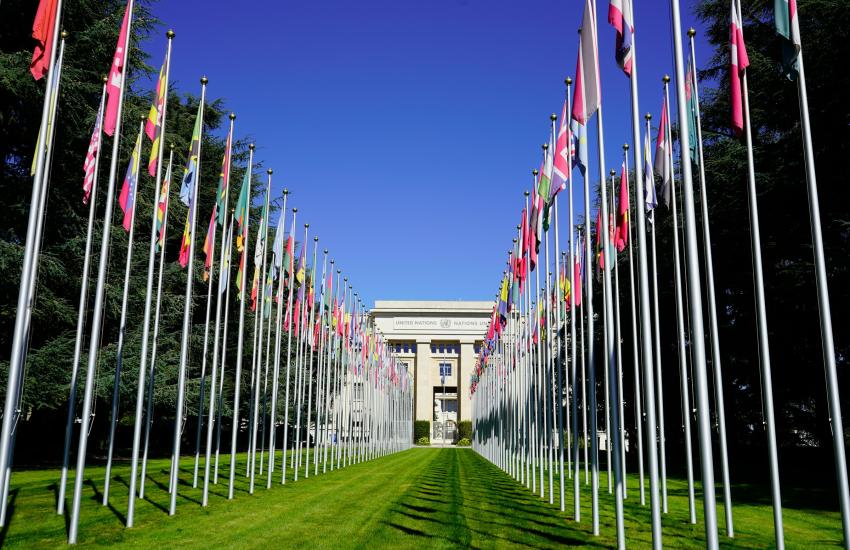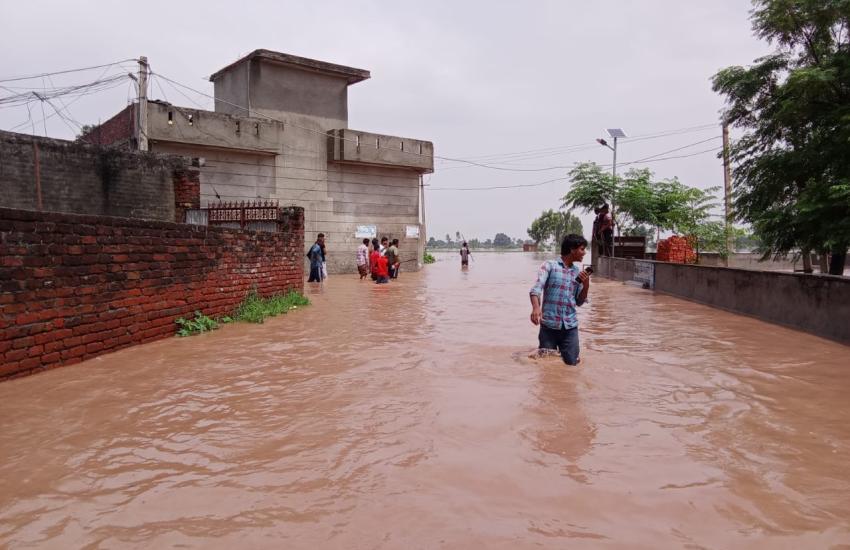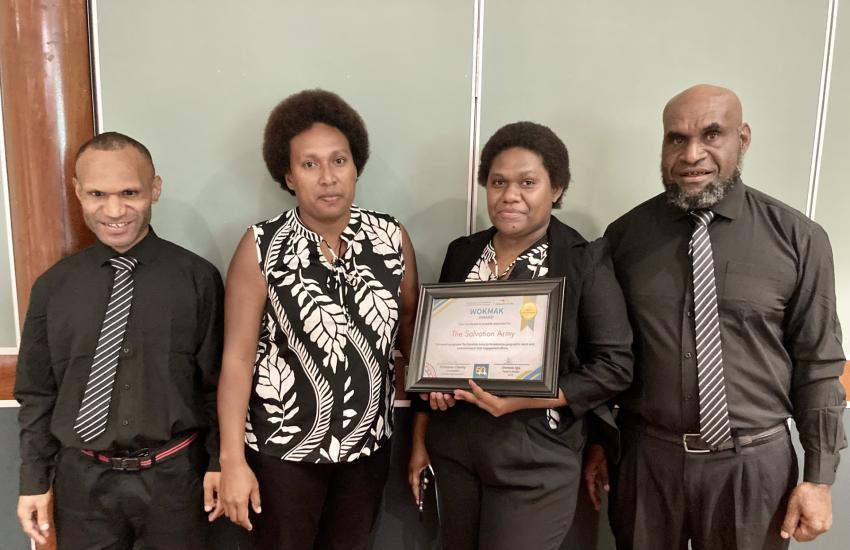In north-eastern Rwanda The Salvation Army is working with people who have been made to leave their lives and homes in Tanzania and start from scratch on a barren hill. International Emergency Services team leader Major Daryl Crowden, who previously wrote about the difficulties faced by these returnees, reports on the transformation taking place in the lives of people living in a village supported by The Salvation Army.
CHANGE is taking place in the village of Gituro. Three weeks ago when we arrived there were 70 small mud-and-stick shelters. People were wandering aimlessly; a few were tending haphazard gardens of sweet potato; most were desperate to go home. These Rwandan returnees knew that their Tanzanian homes were gone, for good, and that there was no going back – but they were not prepared to settle and make Gituro their home. No one wanted to accept that this depressing camp on the top of a desolate hill in north-eastern Rwanda was home.
That was then. Today as I walk around the village in the heat of the day there is activity: and it’s not all activity initiated by us, the members of the Salvation Army team. I counted five new traditional, round, mud-walled, grass-thatch huts. Two are decorated in traditional patterns of ochre colours. A couple of families have entered a trade agreement with a local ‘builder’ to construct houses (mud and thatch) and kitchens.
The threadbare orange-and-silver tarpaulins received on arrival are disappearing as families search out cane and grass to thatch their shelters. Soil is being prepared and sown with new crops of maize, cassava and sweet potato (sweet potato is good because it bears fruit in three months). Ground is being cleared and swept clean. Traditional mud stoves are being constructed, replacing the circle of rocks that was used as a temporary cooking area. As a result, less wood is needed because the new stoves are much more efficient.
Children are making toys out of our building off-cuts and the sounds of laughter and crying pervade the camp. When they’re not following me around trying to get the courage to shake hands with mzungu[white person] they are helping pit diggers empty buckets of dirt or taking turns to pump water.
So, why the new optimism? Sitting in the shade of the community shelter – an eight by five metre wood-and-tin structure built by The Salvation Army in partnership with the locals – I shared my thoughts and asked what they thought had changed.
'We have realised this is home,' I was told. 'There is no going back … we must settle and establish ourselves. We have realised this, and accepted it, because you have installed a permanent pump and we have water here … you are digging and building permanent latrines … you have made this shelter for us. We have heard many promises, but you have given.'
Just four weeks into the water and sanitation project, we are thrilled with the progress. Today – Tuesday 17 April – the little community on the hill received guests. The Salvation Army’s regional leaders for Rwanda, Majors Stephen and Grace Chepkurui, the Nyagatare District Mayor and other Government officials joined us to officially open and dedicate the water pump and community shelter. During his opening speech the mayor pronounced Gituro to be a 'Salvation Army village'. He has ordered the allocation of land to the Army for future community development.
Until today the women and children walked seven kilometres to collect stagnant, brown, contaminated water. This afternoon the guests were taken, behind the Rwandan national and Salvation Army flags, 600 metres to a source that is delivering clear, clean, safe water. After the guests planted some trees around the village we celebrated with the villagers over a soda and a biscuit in the shade of their new shelter.
It was exciting to hear them report to the mayor that there are no families in the village collecting water from the livestock dam now. 'Why would we go two hours to share with the cows,' said one, 'when we have water so close?'
In parallel with this water project, The Salvation Army is funding the digging and building of 70 pit latrines, one for each family. To date there are 39 pits underway, with 20 of them completed to the depth of 10 metres. Bricks are being made on site by the returnees with the help of some local experts and, if the project continues at the current rate, within the next six weeks the villagers of Gituro will have new and adequate sanitation.
In a region that has lost at least 19 people to water-borne diseases in the past six months, these projects are literally life-saving and community-transforming. Through these simple and relatively inexpensive projects the people of Gituro have increased potential to rise above their circumstances. Rather than just existing they can begin to redesign a living for themselves.
If transformation of lives and alleviation of poverty are two of The Salvation Army's mission intentions then we have done a good thing so far in Gituro.
As I leave this beautiful country and her generous people I do so having learned more about myself and the potential of humanity to both destroy and rebuild. I have been reminded about the power of hope. I thank God and The Salvation Army for letting me be their hands for this time and this people.
Funding is still being sought to help provide for the long-term needs of community members in Gituro and other locations.
Resettling in Rwanda (Part Two) - Back to Life
Discover more

The Salvation Army and World Evangelical Alliance call for action on child labour
The Salvation Army has released a joint statement with the World Evangelical Alliance to coincide with the United Nations 60th Session of the Human Rights Council to support the urgent call to end the worst forms of child labour.

Chasing the music
Taylor Swift’s concerts echo spiritual rituals, revealing a deeper longing for connection, identity and unconditional love. This hunger mirrors the eternal fulfilment found in Jesus, whose message transcends fame and fleeting emotion.

Small libraries, big dreams!
Eco-friendly mini libraries are offering meaningful change and connecting hearts and minds across Korea.

Five minutes with... Fernanda Rivera, Mexico
My name is Fernanda Rivera and I live in Mexico City. I work as Youth Engagement Coordinator at the Global Opportunity Youth Network.

Monsoon devastation in Northern India
The Salvation Army responds

The Salvation Army in Papua New Guinea is honoured with inclusivity award
The award recognises The Salvation Army’s extensive geographic reach and inclusive engagement efforts across its programmes.